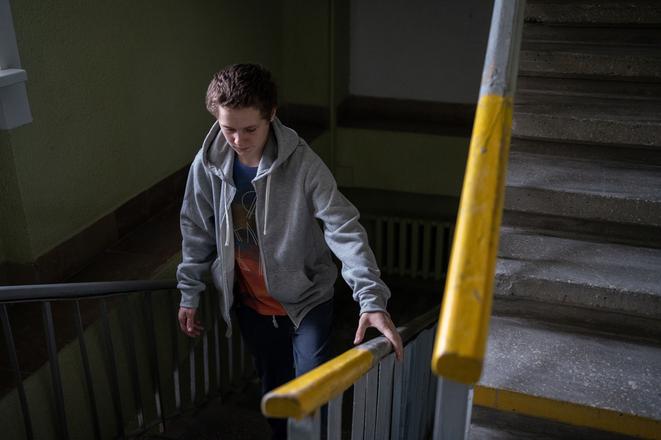Loneliness is an uninvited guest that enters our lives without warning. It is not simply about being physically isolated, but rather a sense of not being heard or understood. A feeling of not being connected to other human beings. It can manifest in various forms and affect us all in different ways.
For some, loneliness feels like being stranded on a desert island surrounded by vast oceans, while for others it resembles a dark cave or a white room with no escape. It may sound like a constant ringing in your ears or a deep, resonating tone. Loneliness wears many disguises, from a hoodie to a black jacket, and it inflicts pain upon us all.
What loneliness does to us
Loneliness creeps into our lives unnoticed. It instills the fear that no one in the world is like us, that no one truly understands who we are or even cares. It erodes our trust in others, making it difficult to confide in them our innermost thoughts and feelings. Loneliness hurts both our souls and our bodies. According to a very recent statement by US Surgeon General Vivek Murthy, the impact of loneliness on our health could be as dangerous as smoking 15 cigarettes a day.
You are not alone
Loneliness also remains a taboo subject due to the shame associated with it. This makes it extra hard to tackle loneliness – that’s why it is essential to recognize that many of us experience it.
Among them, there is Nastia (fantasy name), a 20-year-old university student from Ukraine who lives in Slovakia. Nastia shared that she had lost her sense of joy since she fled the war back home. Disconnected from her normal environment and unable to plan for the future, she feels adrift. She follows the news constantly, fearing for the safety of the people she left behind.
Although her mind urges her to socialize, she struggles to find solace in human connections. In her case, reading books and immersing herself in the stories of others helps alleviate her loneliness.
Knowing that there are others who have experienced similar feelings can bring comfort. This is why community engagement activities, for example youth clubs or support groups for mothers can make a real difference.
There is something you can do
Regardless of our circumstances, we can reconnect with the world by paying attention to the small joys of life – nature, sports, a conversation with a friend but also listening to ourselves, and actively listening to others. By identifying the things that bring us pleasure and providing relief to those around us, we can navigate the tumultuous waters of loneliness.
In addition, Ukrainian adolescents have shared with us various strategies for coping with loneliness. They suggest:
Seeking out friends and engaging in activities through Facebook and Telegram groups and social media platforms.
Engaging with art, whether listening to or creating music, dancing or painting.
Being in nature through activities like taking walks, breathing fresh air and exploring botanical gardens.
Engaging in household tasks such as cooking, baking and decorating.
Maintaining connections with loved ones, even from afar.
Playing video games, which can provide a sense of connection and engagement.
However, not everyone can deal with loneliness by themselves. In such cases, UNICEF supports two hotlines in Slovakia. These are the Child Safety Line managed by Child Helpline International at 116111, which serves children and adolescents specifically, and the Nezábudka managed by Mental Health League at 0800 800 566, which serves all age groups. Both lines are operated in Slovak and Ukrainian.
In conclusion, loneliness is a universal experience that can affect us all. It is not something to be ashamed of, but rather an opportunity for us to connect with ourselves and find connection with the world around us.



 Mykyta, 16, lost many friends and relatives due to fighting in Bakhmut and across Ukraine. (source: UNICEF/UN0823675/Filippov)
Mykyta, 16, lost many friends and relatives due to fighting in Bakhmut and across Ukraine. (source: UNICEF/UN0823675/Filippov)